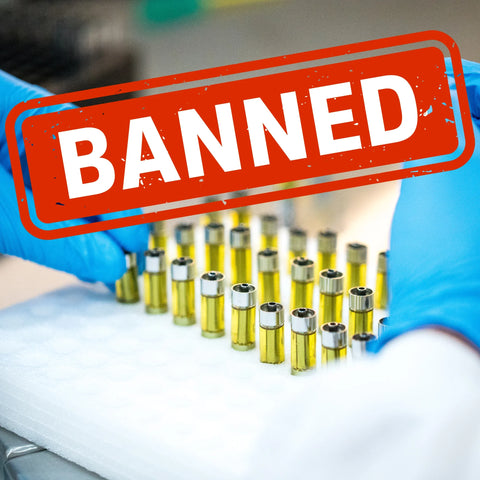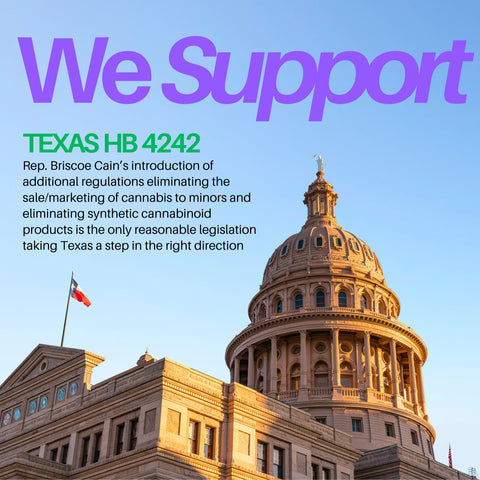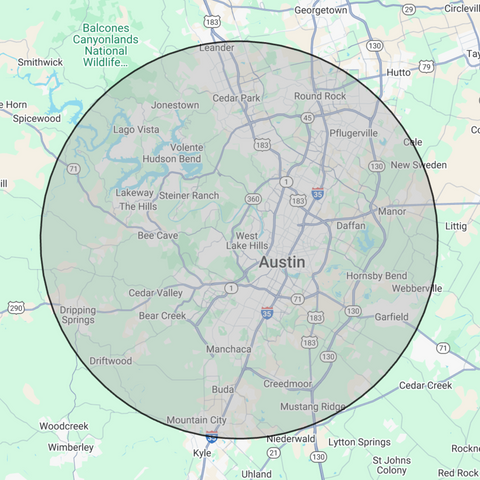At Uforiq, we’ve been vocal for years about the dangers of cannabinoid vape products—and we’re not alone anymore. This month, Texas Governor Greg Abbott signed Senate Bill 2024 into law, a sweeping piece of legislation that targets unsafe, unregulated vaping products including those containing cannabinoids like Delta‑8, Delta‑10, THC‑O, and THC‑P.
For us, this law is more than a political milestone—it’s confirmation that the concerns we’ve raised all along are valid and urgent.
What SB 2024 Means for Texas
Senate Bill 2024, effective September 1, 2025, makes it illegal to sell or distribute vapes that:
-
Contain cannabinoids (including Delta-8, Delta-10, THC-O, THC-P, etc.)
-
Are manufactured in or with parts from foreign adversaries like China
-
Are designed to look like toys, cosmetics, or other disguised formats
-
Target minors through deceptive marketing or flavoring
-
Fail to disclose ingredients or lab testing
It’s one of the strongest anti-vape bills passed in the country—and it targets exactly the kinds of products we’ve been warning our community about.
Why We Took a Stand on Vapes
Our position is simple: you deserve to know exactly what’s going into your body. The problem? Every cannabinoid vape product we’ve investigated has failed that test.
We’ve spent time behind the scenes trying to vet vape manufacturers—asking direct questions about ingredients, sourcing, lab testing, and transparency. What we found was alarming:
-
Synthetic cannabinoids like THC‑O and THC‑P were often included without disclosure!
-
Manufacturers weren’t able (or willing) to explain the full chemical profile of what they were selling
-
Products contained unknown additives, conversion byproducts, or solvents used in the lab synthesis of cannabinoids from hemp
-
Even QR codes and lab results were often forged, misleading, or completely irrelevant to the batch on hand
These weren’t isolated incidents—they were patterns across the board. That’s when we knew: there’s no such thing as a “safe” vape in the hemp market.
What the Science Says
The research now backs up what we experienced firsthand:
-
THC-O acetate has been shown to produce ketene gas when heated—a chemical also found responsible for the deadly EVALI outbreak that hospitalized thousands and took dozens of lives.
-
THC-P, another synthetic analog, binds more than 30× more strongly to cannabinoid receptors than traditional THC. That’s not “extra strength”—it’s neurochemical volatility.
-
Multiple case studies have linked synthetic cannabinoid vapes to psychotic episodes, hallucinations, respiratory issues, and lasting neurological effects.
Even in licensed, legal states, testing has revealed contaminated cartridges, mislabeled potencies, and hidden toxins; proving that regulation doesn’t always mean protection.
Why SB 2024 Validates What We’ve Been Saying
From day one, we’ve built Uforiq on the promise of safety, integrity, and radical transparency. When it comes to cannabinoid vapes, that transparency doesn’t exist—not from the brands, not from the labs, and not from the packaging.
SB 2024 echoes the same red flags we’ve been waving:
-
Hidden ingredients? Banned.
-
Foreign-sourced mystery cartridges? Banned.
-
Marketing to kids and disguising danger as fun? Banned.
And it’s about time.
What This Means for You
We’re proud to be ahead of the curve—not just compliant, but conscious. While others waited for policy to catch up, we chose to put health first. Here’s what that looks like:
-
No vapes. Not until ingredient integrity is real, regulated, and backed by independent science.
-
Full transparency. Every Uforiq product you see is third-party tested, clearly labeled, and comes from partners we trust.
-
Advocacy, not just compliance. We don’t just follow the law—we help shape it by holding the industry accountable.
Final Thoughts
SB 2024 is more than a ban. It’s a signal that consumer safety finally matters more than cheap highs and flashy marketing.
At Uforiq, we’re proud to offer a cannabis experience rooted in trust, education, and clean access. That’s the standard we’ve held ourselves to—long before Texas made it law.
And we’re just getting started.






Comments (0)
There are no comments for this article. Be the first one to leave a message!